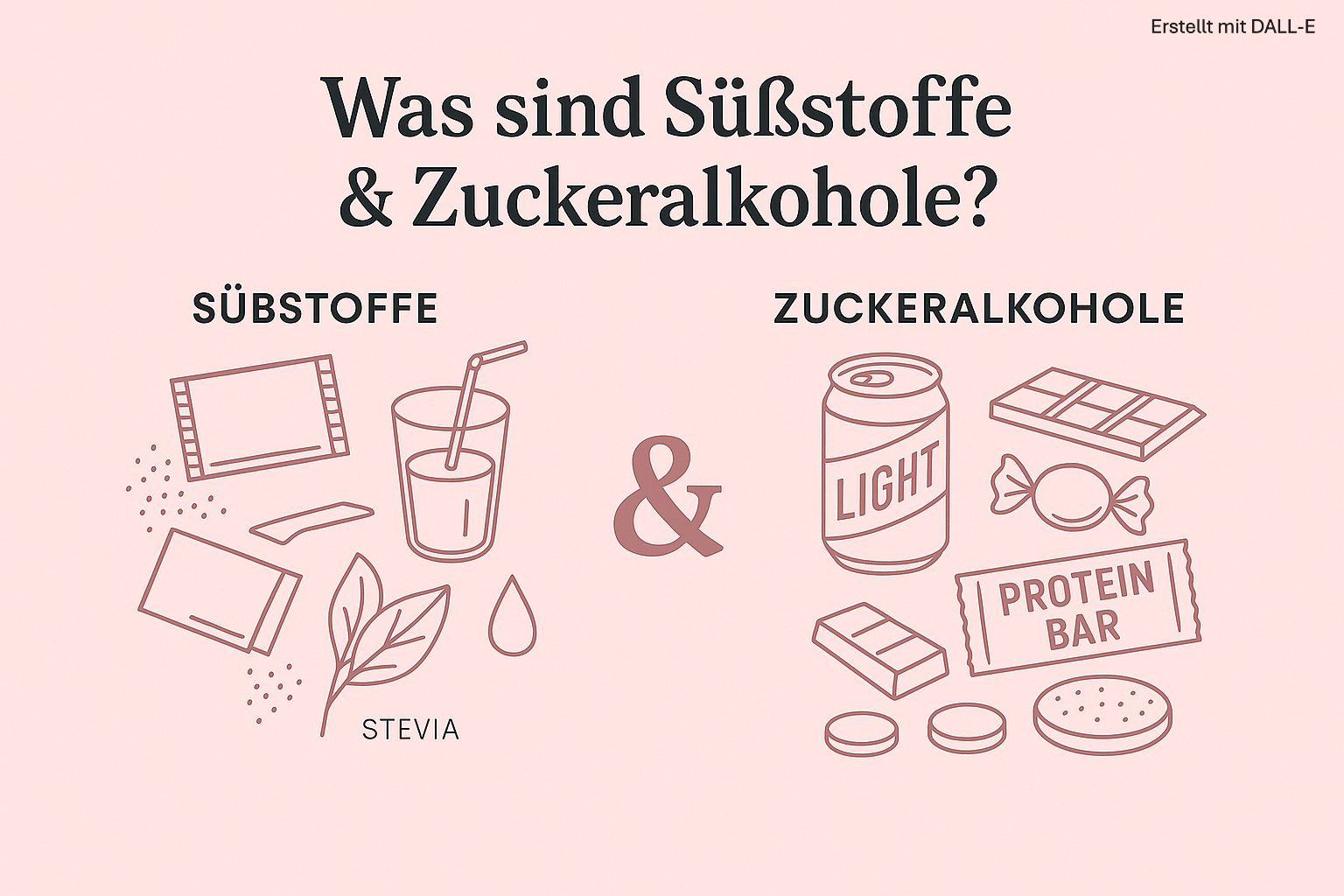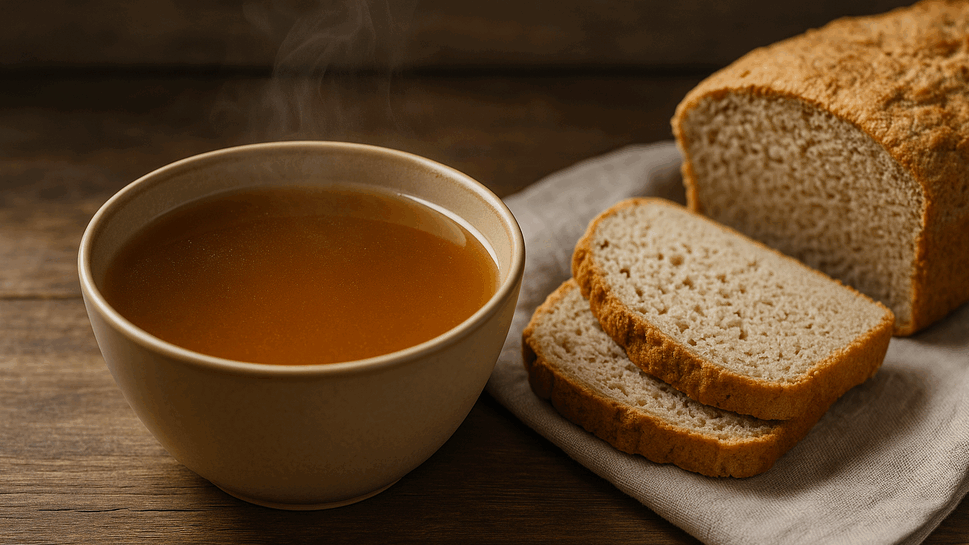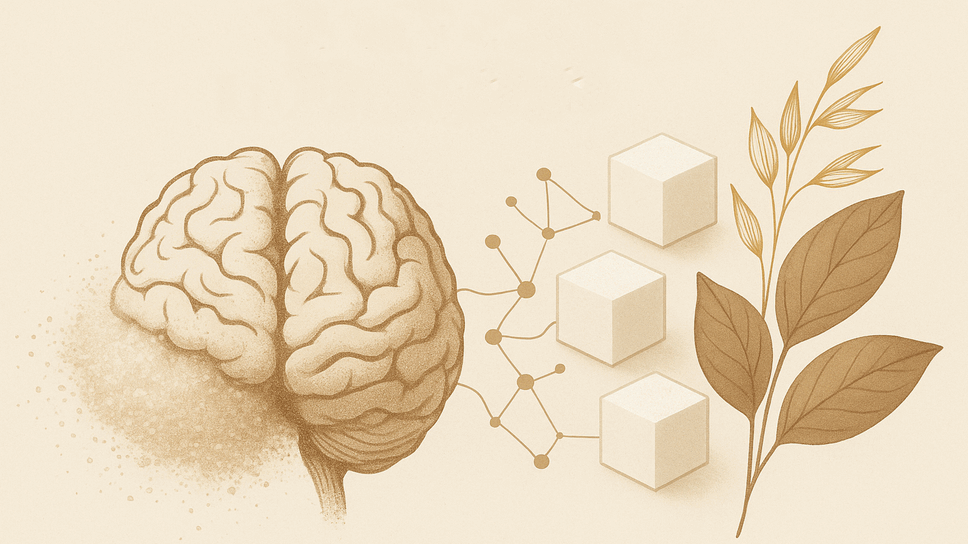
What are Sweeteners & Sugar Alcohols?
What are Sweeteners and Sugar Alcohols?
Sweeteners and sugar alcohols are often seen as modern alternatives to conventional sugar. Found in light drinks, sugar-free candies, and protein bars, they appear in countless everyday products. But what exactly are these substances? How do they differ, and how safe are they? A detailed look at sweetness beyond classic table sugar.
What are Sweeteners?
Sweeteners are compounds with a very high sweetening power. Even in tiny amounts, they can create a sweet taste — in some cases up to 3,000 times sweeter than sugar. They typically contain few or no calories and are either synthetically produced or extracted from natural sources and then industrially processed.
Common Examples:
- Aspartame
- Sucralose
- Acesulfame-K
- Saccharin
- Steviol glycosides (derived from the stevia plant)
These substances are mainly used in reduced-calorie products such as diet sodas or desserts. They are especially stable and in some cases heat-resistant.
Note: Aspartame is metabolized into phenylalanine in the body — individuals with phenylketonuria (PKU) must strictly avoid this substance.
What are Sugar Alcohols?
Sugar alcohols (also known as polyols) are a chemical hybrid of sugar and alcohol. They occur naturally in small amounts in certain fruits and vegetables, but for use in food they are mostly industrially produced from glucose or other sugar sources.
Common Types:
- Xylitol (birch sugar)
- Erythritol
- Sorbitol
- Maltitol
- Isomalt
- Lactitol
Unlike sweeteners, sugar alcohols have a moderate sweetening power (typically 60–90% of sugar’s sweetness) but also contain calories — although in reduced amounts. Erythritol is an exception, as it is almost completely excreted and thus nearly calorie-free.
Although sugar alcohols are considered tooth-friendly and technologically useful, they are viewed critically from a nutritional perspective. Their impact on digestion, the microbiome, and metabolism continues to be studied.
They are not whole food ingredients but functional additives designed to taste sweet. For this reason, we use them with caution and prefer natural alternatives.
Criticism & Discussion
🔹 Digestion
In higher quantities, sugar alcohols can have a laxative effect, as they are fermented by gut bacteria in the colon and draw water osmotically. Children and individuals with sensitive digestion are especially affected.
🔹 Gut Microbiome
Some studies suggest that certain sugar alcohols — and some sweeteners — may affect the balance of gut bacteria. Long-term effects are still unclear.
🔹 Appetite Stimulation
Some findings indicate that sweeteners may influence the brain’s reward system, potentially increasing appetite without delivering energy.
🔹 Health Debates
Although approved sweeteners are considered safe, they remain the subject of ongoing research. In 2023, for example, studies by Charité Berlin suggested a potential link between xylitol and increased thrombosis risk. The full article is available on the Charité Berlin website.
Conclusion: Between Technology & Responsibility
From a technological standpoint, sweeteners and sugar alcohols offer certain benefits. However, a closer look is worthwhile: not every substitute is automatically better. Especially for sensitive individuals or children, restraint is advisable.
Those who aim to eat consciously should consider not only calories or sugar, but also the degree of processing, satiety, and the overall product profile. That’s why we work with natural ingredients — and without any additives.
Disclaimer: This article is for informational purposes only and does not replace medical advice.
Das könnte dich auch interessieren
19. December 2025
The brain does not age linearly – and that is precisely its strength
Why does learning new languages often feel effortless at a young age, while later in life…
7. November 2025
As good as homemade bone broth – just more modern
The answer from UNE Foods Anyone who has ever made traditional bone broth knows how much…
24. October 2025
Sugar – The Silent Saboteur of Our Brain | UNE FOODS
Sugar affects far more than just blood glucose levels – it shapes how our brain thinks,…




